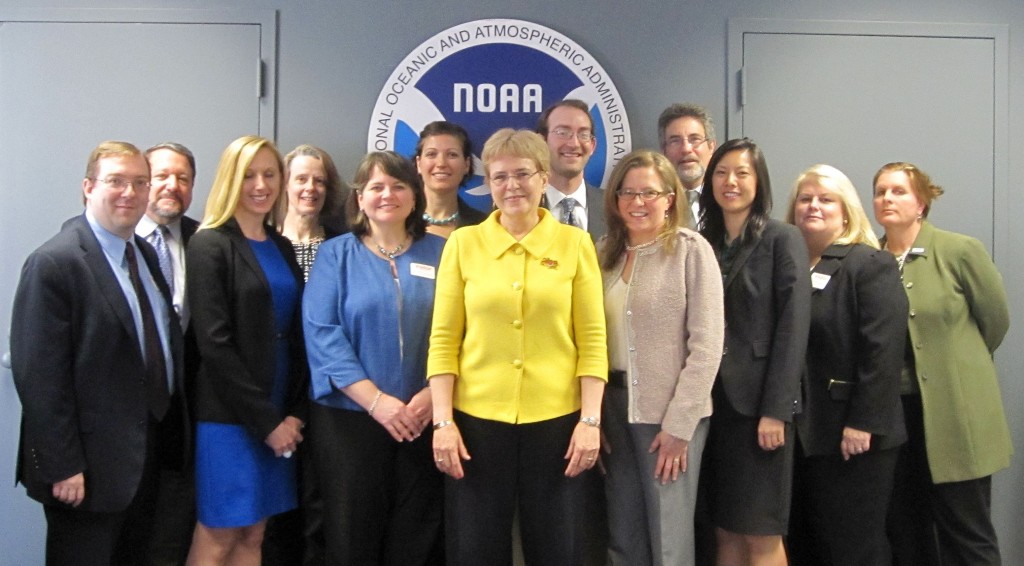From: https://www.noaa.gov/stories/noaa-administrator-dr-rick-spinrad-my-first-100-days
September 30, 2021, marks the 100th day for NOAA Administrator Rick Spinrad in guiding the agency with three overarching priorities: establishing NOAA as the primary authoritative provider of climate information and services while the nation tackles the climate crisis; integrating equity into our operations; and promoting economic development while maintaining environmental stewardship, with a focus on advancing the Blue Economy.
Enhancing NOAA’s climate authority
Dr. Spinrad: “It is my top priority to establish NOAA’s role as the primary authoritative provider of climate products and services that can be applied to a diverse range of missions, just as NOAA is the authoritative provider of weather forecasts, navigational charts, and stock assessments. We play a unique role in that not only do we collect data and conduct research, but we are mandated to make it operational. We provide the public and our federal, state, tribal, and private sector partners with actionable environmental information so they can make decisions in the face of climate change. No matter the need, people will know they can turn to NOAA for reliable, easy-to-use climate information. We are already seeing increasing demands for this, as demonstrated by the record-setting summer of extreme heat, exceptional drought, raging wildfires, unprecedented rains, and damaging hurricanes. The climate crisis is upon us and NOAA is a key part of the whole-of-government response.”
Integrating equity
Dr. Spinrad: “To fully realize NOAA’s mission, we must integrate equity into everything we do. I have made equity a central focus and it is to be embedded in everything we do. Doing so will better position NOAA to help tackle the climate crisis, produce better science, deliver better services, be better stewards of the environment and the economy, and build a more inclusive workforce.”
Economic development, sustainability, and partnerships
Dr. Spinrad: “One of my top priorities is to bolster sustainable economic development. A key component of accomplishing this is advancing the blue economy, which I define as the knowledge-based ocean economy: looking to the ocean for data, information, and knowledge that can be applied to new, sustainable business development, products, and services in new and traditional ocean-based sectors. The Blue Economy offers opportunities for sustainable, climate-smart innovation and economic growth based on sound science.”
Friends of NOAA congratulates Dr. Spinrad on his first 100 days in office and the vision that is emerging for NOAA in the years ahead.

